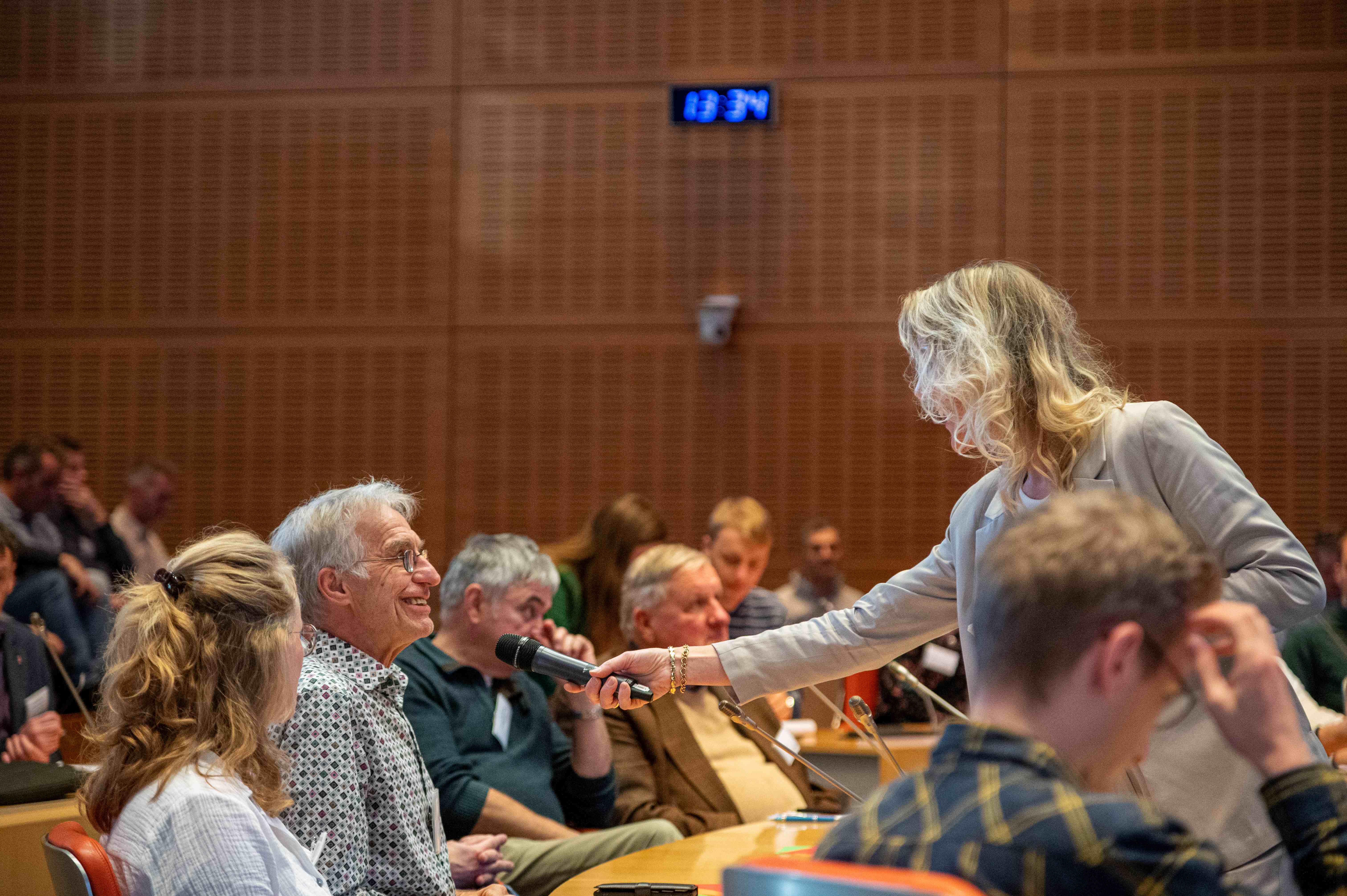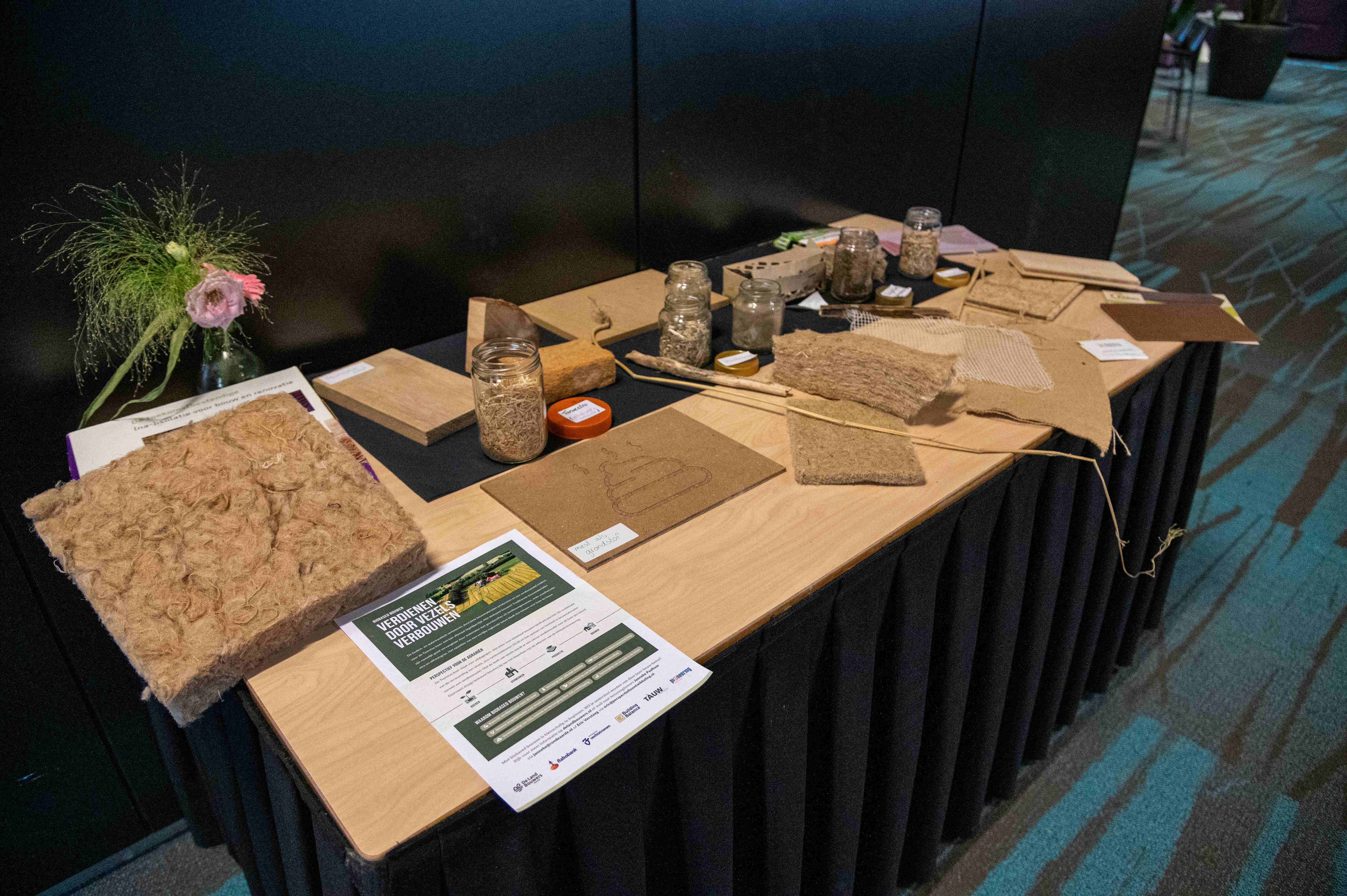More than 140 participants attended the annual BEON-conference on biobased production of energy and materials. The province of Overijssel hosted the event in the large provincial Council Hall in Zwolle. BTG, together with the Rabobank, was part of the organisation team.

At the conference important milestones that have been achieved this year, were presented by companies, NGO’s and municipalities. With excursions in the morning and presentations and discussion in the afternoon.
A very inspiring excursion was to the Materials Experience Centre in Zwolle. The foundation Building for Good presented its achievements in developing production lines for biobased production from fibre crops. The Foundation is bringing together stakeholders from farmers to end users and demonstrates and evaluates biobased products for the building industry.
Key note speaker in the afternoon session was Ramon van der Tol with the presentation of the Rabobank’s view on biobased production and the agricultural sector. The Rabobank is the largest bank in the sector and feels highly responsible for its sound and sustainable development. He presented the instruments the Bank has at its disposal to support promising investments on biobased production.
This was highly welcomed by Tijs de Bree, member of the provincial government. He warmly supports biobased production from agricultural and forestry feedstocks. The task of the government is to create an attractive investment climate to enable municipalities and the private sector to launch successful initiatives. He embraces the idea of co-production: energy and materials based on organic feedstocks. Both is needed to meet energy and climate goals.

More biobased production means higher demand for raw materials. They can't just come from Dutch soil only. There will be not enough. Moreover, this is expensive, due to high acre prices. Foreign supply will be necessary to keep products affordable, as became apparent in the panel discussion on this topic. Farmers must have a good yield, argued the sector’s foreman André Rotteveel. And he is happy to grant the opportunity for fibre crop production to French or German colleagues where costs are lower. On the forestry side, Henk Wanningen, policy adviser at the State Forestry Board, believes personally that new forests should be made much more multifunctional. There is no need to be strongly restrictive in harvesting in all new forest. This should help in providing more feedstock for local biobased production.
In the workshops, presentations and discussions focussed on biobased economy and green gas production. With nice examples of construction materials from manure, wood and fibre crops such as straw, sylphie, miscanthus and hemp. Also, dilemmas were presented as the durability of biobased materials in infrastructure and the challenges in reuse and recycling.
It was good to see so many companies, municipalities, research institutes and financial partners coming together to share experience on important regional biobased production opportunities. The organisation is already looking forward to the conference next year.
